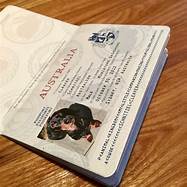When Your Pet Dies: What to Do
Losing a beloved pet is never easy. It can be a painful and confusing time, and it's important to know what to do to help yourself through the grieving process. Here are some tips on what to do with your pet when it dies:

Grieving
1. Allow yourself to feel your emotions. It's important to let yourself feel the pain and grief of losing your pet. Don't try to bottle up your emotions or pretend that you're not upset. Talking to a friend, family member, or therapist can help you process your emotions and begin to heal.
2. Create a memorial for your pet. This could be as simple as planting a tree in their memory or creating a scrapbook of their life. It can be a helpful way to honor their memory and keep them close to your heart.
3. Take care of yourself. During this difficult time, it's important to take care of yourself both physically and emotionally. Make sure you're eating healthy, getting enough sleep, and exercising regularly. These things will help you stay healthy and cope with the stress of losing your pet.
Funeral Arrangements
1. Decide on a burial or cremation. There are two main options for disposing of your pet's remains: burial or cremation. Burial is the traditional option, and it allows you to have a place to visit where you can remember your pet. Cremation is a more convenient option, and it can be less expensive than burial.
2. Choose a burial site or crematorium. If you choose burial, you'll need to find a cemetery that allows pet burials. If you choose cremation, you'll need to find a crematorium that specializes in pet cremation.
3. Hold a funeral or memorial service. If you wish, you can hold a funeral or memorial service for your pet. This can be a simple ceremony at home or a more elaborate service at a pet cemetery or crematorium.
Pet Loss Support
1. Join a pet loss support group. There are many pet loss support groups available, both online and in person. These groups can provide a safe and supportive environment where you can share your grief with others who have experienced the loss of a pet.
2. Talk to a veterinarian. Your veterinarian can provide you with information about pet loss and grief. They can also help you find a pet loss support group or therapist.
3. Read books and articles about pet loss. There are many books and articles available that can help you understand the grieving process and cope with the loss of your pet.
Declaration: All article resources on this website, unless otherwise specified or labeled, are collected from online resources. If the content on this website infringes on the legitimate rights and interests of the original author, you can contact this website to delete it.





